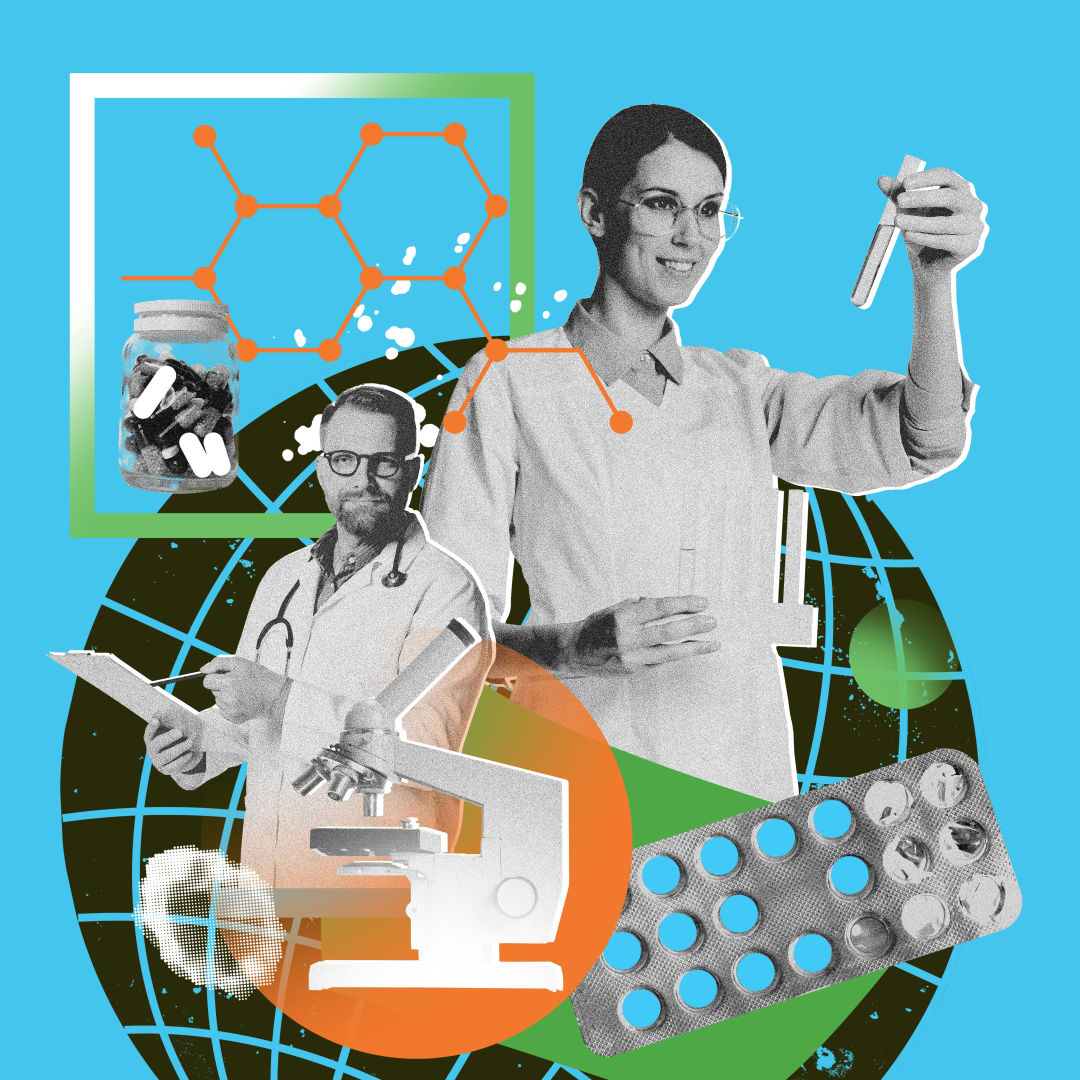The Jellison Family Foundation Is Helping Fund Breakthroughs in Cancer Vaccine Research

Image: Master1305/Shutterstock.com
It seems inconceivable: a cancer vaccine that can teach the immune system to attack nefarious cells. Even breast cancer survivor Kristen Dahlgren, who reported on health topics during her time as an NBC correspondent, hadn’t heard of cancer vaccines. But now she’s using her reach and influence as a bullhorn to spread word about the research behind cancer vaccines, and help from an old friend is amplifying the call.
That’s thanks to a major philanthropic commitment from Sarasota's Brian and Sheila Jellison Family Foundation. As the first major donor to Dahlgren’s newly established Cancer Vaccine Coalition, the foundation has pledged a $2 million matching gift to accelerate the development of breast cancer vaccines. Experts say the funding could be a game changer for research efforts stalled by a lack of financial backing.
The Jellison family, who lost Brian D. Jellison to cancer in 2018, recognized the urgency of the research. Their shared experiences—Dahlgren as a breast cancer survivor and the Jellisons as a family affected by loss—fueled a partnership rooted in hope and action. Dahlgren was a close childhood friend of Hilary Jellison (now Hilary Jellison Simonds), Brian and Sheila's daughter. Dahlgren and Hilary lost touch as they grew up, but reconnected decades later after Dahlgren saw the family post a social media comment on a story about Dahlgren’s choice to leave journalism to start the nonprofit.

Image: Courtesy Photo
Dahlgren left NBC roughly a year ago to dedicate her life to help accelerate the development of cancer vaccines. "I had a great career, but as soon as I learned about the science behind cancer vaccines, I knew I had to do something," she says. "I was floored that I had never heard of cancer vaccines before, even as a medical reporter. If I didn’t know, how many others are unaware? We need to spread the word and push for funding."
She founded the Cancer Vaccine Coalition to unite researchers, medical professionals and funding sources to eliminate roadblocks in vaccine development. “The pieces of the puzzle are there—we just need to fund the trials and put them together," she says. According to the National Breast Cancer Foundation, one in eight American women will be diagnosed with breast cancer in their lifetime. An estimated 43,000 die from the disease each year.
Dr. Kiran Dhillon, the executive director of the Cancer Vaccine Institute at the University of Washington, echoes Dahlgren’s urgency. "We're at a tipping point in harnessing decades of research to create a vaccine-powered, cancer-free future," she says. The Institute has become the largest academic group in the U.S. dedicated to cancer vaccine development, with 15 patents, 30 clinical trials, five vaccines on the market and more than 400 patients vaccinated.
"Our vaccines are designed to train the immune system to recognize and attack cancer cells, much like traditional vaccines do for infectious diseases," says Dhillon. "Unlike chemotherapy, which remains in the body for a limited time, vaccine immunity can last a lifetime with regular boosters. Our approach also minimizes side effects by targeting cancer at the cellular level while sparing healthy cells." The Institute is currently testing three types of vaccines: one for patients with metastatic cancer, meaning the cancer has spread; another for high-risk individuals with family histories of cancer; and a third that can be used alongside chemotherapy to improve the efficacy of treatments.
Most of the Institute's ongoing clinical trials—currently numbering seven—focus on vaccines designed to cure existing cancer growth or prevent its return. However, researchers are also working on preventive vaccines. One such effort, STEMVAC, targets five cancer stem cell proteins and could help prevent multiple types of cancer. It is currently being tested in a phase two lung cancer study and a breast cancer study. Another project focuses on a colon cancer vaccine that targets pre-cancerous lesions called colon adenomas. To date, the Institute has administered more than 2,600 vaccines, about half of them DNA vaccines, with no severe side effects beyond mild flu-like symptoms.
Dhillon, a cancer survivor herself, understands the stakes involved. "As a survivor, the idea of recurrence never truly leaves you," she says. "I spent a year in treatment and still face lifelong risks. The thought of a simple vaccine that could empower my immune system to fight cancer instead of enduring toxic chemotherapy is what keeps me going. We need collaboration and support to bring these vaccines to approval in the next five to eight years. Lack of funding delays our progress, and we receive heartbreaking messages every day from patients desperately waiting for access."
"Right now, the only options are toxic chemotherapy, radiation or even amputation," Dahlgren says. "These treatments save lives, but they come with lasting physical and emotional scars. I know that firsthand. I have numb areas and lung fibrosis from radiation, and I live with the constant fear of recurrence. The idea that we could use our own immune systems to fight cancer is transformative."
Despite breakthroughs, a shortage of funding remains a major hurdle. "According to the Centers for Disease Control and Prevention, the U.S. spends approximately $29 billion on breast cancer treatments annually," says Dahlgren. "For a fraction of that cost, researchers can fast-track these potentially life-saving cancer vaccines to patients within a decade. There’s no time to wait when an average of 114 patients die from breast cancer every day."
Oracle co-founder Larry Ellison recently highlighted the promise of cancer vaccines in a discussion at the White House, further amplifying public awareness of progress in the field.
"We all know countless women who have battled breast cancer," says Hilary Jellison Simonds. "My mother Sheila always says, 'We believe that hope is the most important element when dealing with cancer.' Together with the Cancer Vaccine Coalition, we can pave the way for a future where cancer is not just managed, but eradicated."
To learn more about the Cancer Vaccine Coalition and the research, click here.



